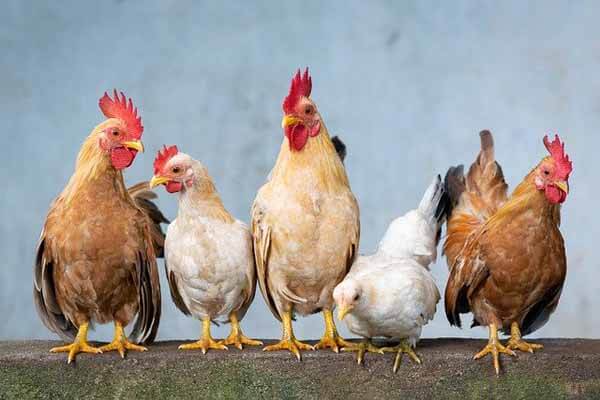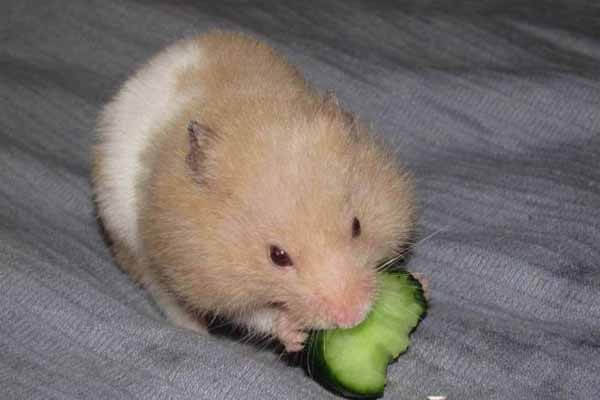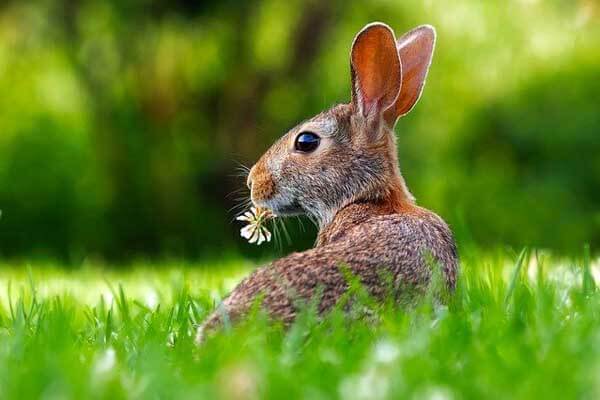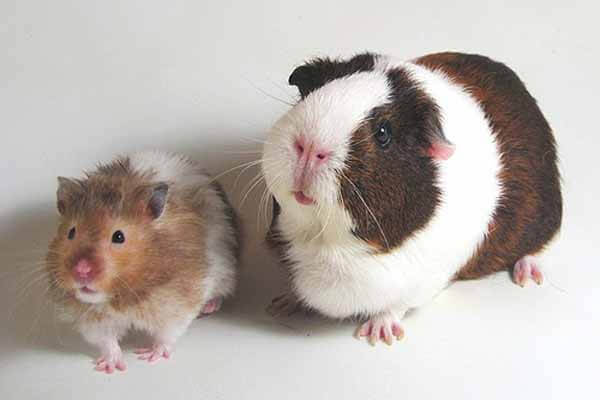In general, goats love food diversity.
By nature, they are researchers and love to wander and look for food. This is very important for their well-being. Natural food for goats is fodder, trees, grapes, hay, fruits, and small amounts of grains. By “pasture” we mean a wide range of plants: grass, clover, alfalfa (Medicago sativa), chicory, legumes, shrubs, young trees, etc.
Pasture biodiversity is directly related to the quality of food consumed (more diverse food is better quality). By “cereals” we mean the seed part of cereals (e.g. corn) and this is the food that goats have eaten in the wild for centuries, but in very small quantities compared to foot feed.
Goats also have the ability to stand on their hind legs or climb trees and eat different fruits of trees and vegetation. However, it is not safe for your goats to feed on any unidentified plant. In some cases, it has also been reported that cabbage, potatoes, and tomato leaves are toxic. In all cases, the future goat owner must find out which plants in his area can be toxic.
Before commercial feed began to be used in the 20th century, old farmers fed their goats only fodder, corn, hay, and some fruits. However, the most popular commercial breeds, which were bred today for meat and/or milk, respond well to commercial feed. In general, the diet of meat breeds is different from that of dairy breeds.
Generally, meat goats are fed only on foot feed, hay, and fruit, while dairy goats are usually fed on commercial feed, most of which contain a mixture of grains. It goes without saying that you need to grow a sufficient variety of foot feed in your field most of the year, otherwise you should use commercial feed for all goats. For example, in many regions where alfalfa and related plant species are not grown due to the climate, many farmers use commercial goat cubes of alfalfa.
The most common commercial goat food is a mixture of corn and oats pellets and cubes. Typical commercial goat food for young and nursing goats contains grains and trace elements to give milk in large quantities. The most common ingredients are corn, wheat flour, soybean meal, and sun-dried alfalfa. Remember that grain is needed only for goats with special needs (young, during lactation, etc.). It must be introduced gradually and in small quantities into the diet of goats. If you exceed a certain limit, then goats are likely to have various health problems.
On average, young goats (from 1 to 14 months) are usually given 1-2 coffee cups of blended beans every day depending on their weight (read the instructions carefully). However, the goal at this age is to encourage them to learn how to study and look for their food with or without their mother. They are also given hay once a day in summer and twice a day in winter. Minerals and herbal supplements are also given in moderate amounts.
Adult goats, without milk and not pregnant, are usually given hay twice a day during winter and once a day in summer, while they can graze freely most of the day. They are also given soda in feeders (soda has been reported to help their digestion). Adult goats, pregnant or with milk, are given all of the above plus 2-5 coffee cups of blended beans per day (depending on the weight of goats and the amount of milk – read the instructions carefully). Of course, a pregnant or milk goat does not have enough strength to look for food all day long, so it is usually added vegetable dietary supplements (alfalfa cubes). Adult goats are usually given all the above, except grains. Some goat farmers daily give them a small number of beans (1-2 coffee cups), while others feed them only foot feed, hay, minerals, and some plant-based dietary supplements.
In any case, water in the goats’ barn should be available 24 hours a day. Drinks should also be located in 2-3 remote places in your field. You should change the water at least once a day. You can also attach a feeder inside the shed to give them apples, carrots, and bananas. Finally, salt stones (as a mineral additive) should be added to the regular goat feed.
Whether or not to give goats waste from the kitchen is a very controversial issue. Many farmers give a small amount of fruit and vegetable waste (skins from fruits and vegetables) or a small piece of bread and their goats like it. However, such food should be given very little as a treat rather than as a staple food.
Inexperienced farmers should consult with local experts, veterinarians, or agronomists to draw up a proper annual feeding program. In many cases, plants and weather conditions in the region are important components of the program. Remember that any changes in diet must be made gradually, or the animals will suffer from diarrhea and other disorders. You can learn more by reading the article Poisoned Plants for Pets.
Can Goats Eat Grapes or Not?
While goats are a great source of fiber and vitamins, they also love grapes. The best way to feed your goat grapes is to slice them up and mix them in with the hay. When feeding your goat grapes, you should watch for unusual behavior. You can give your goat as many as two pounds of grapes per week, or use a portion of each to make a snack for your goat.
As a general rule, goats can’t ingest grapes in large quantities. But grapes can be fed in small amounts. The amount of seeds in green grapes is too high to be digestible by goats. In addition, green grapes have too much sugar. As a result, goats shouldn’t consume grape juice or other types of fruit unless they’re also being fed a staple diet.
Although grapes are edible to humans, they’re not good for goats. The seeds and vines are a poor source of nutrition. So, before introducing grapes to your goat, be sure to remove them from its diet for at least three days. This will clear its digestive system of any excess nutrients. When you reintroduce grapes to your goat, they should have no problems with digestion.
Grapes are not an ideal food for goats. They don’t digest them properly, so you should always give them something else to eat. It’s better to give your goat grape leaves than the entire vine because it will cause bloat and other problems. However, grapes don’t have high nutritional value, so don’t overfeed your goats. In general, grape leaves are a good source of protein and prevent your goats from getting too bloated.
As for the fruits, grapes are rich in vitamins and minerals. Goats can eat them, but it’s best to limit them to small portions. They can’t eat too much, but they can eat grape peels, but the peels should be limited to a few handfuls per day. And grapes can also cause bloating if they’re not well-fed.
While some breeds aren’t known to be allergic to grapes, some individuals may be. As a result, the risk of a goat developing allergies to grapes varies. The immediate symptoms of a goat’s allergic reaction to grapes are hives, facial swelling, and itchiness throughout the body. If your goat has a compromised immune system, you should avoid giving them grapes.
Goats love grapes, and they’ll happily eat grape leaves, albeit in small amounts. During their pregnancy, goats will produce lots of milk. It’s important to remember that goats don’t like grape skin. But they’ll happily eat the flesh of the grape. The grape skin will be left on their stomachs, which can be problematic for the goat. These benefits can be passed on to newborns and pregnant goats.
While grapes can be an excellent snack for goats, they should be avoided when feeding goats. Their stomachs are designed for grain, not grapes. In addition to this, grapes contain high amounts of vitamin C and antioxidants, which are essential for the animal’s health. It is recommended to keep grapes out of reach of goats because they can get into their mouths and choke on grapes.
If you don’t want your goat to eat grapes, you can try feeding it grape leaves and stalks. Generally, goats do not eat the whole fruit, but they do like the leaves and stalks. Even if you don’t feed your goats with grapes, it won’t cause any negative side effects. But if you can manage to get your goat to eat grapes, they can happily eat them.
A few goats can tolerate grapes, but they may be prone to digestive problems after a heavy grape intake. Because of their sensitive digestive systems, grapes can disrupt their normal fermentation in the rumen, leading to bloating and flatulence. During this time, the goat should stop eating grapes and switch to other types of food. If they do, they’ll feel better, but they might not be able to stand the smell.








